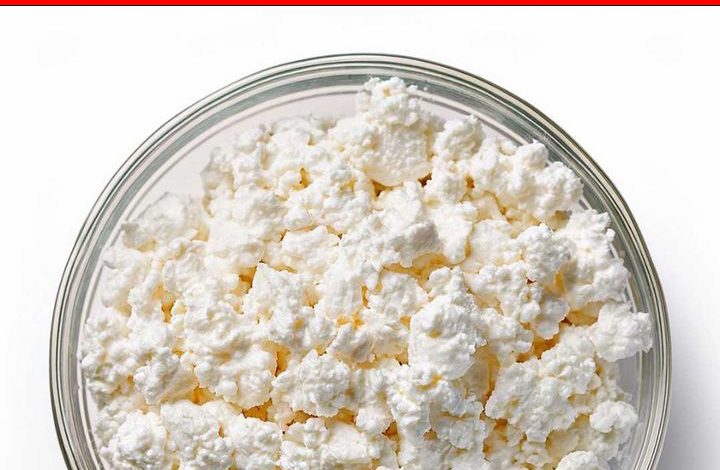I just ate some of this today! Oh no

Food expiration dates are not merely “suggestions”; they are crucial indicators of a product’s potential decline in quality or safety. Ignoring these dates can have serious consequences, including foodborne illnesses caused by harmful bacteria, mold, and other pathogens. This article will delve into 14 food categories that should never be consumed past their expiration dates to safeguard your health.
ADVERTISEMENT
Understanding the Expiration Date Landscape
ADVERTISEMENT
Expiration dates come in various forms, each with a distinct meaning:
ADVERTISEMENT
- “Sell by”: This date informs retailers about the last day a product should be displayed for sale.
- “Use by”: This date signifies the last recommended date for using the product while it maintains peak quality.
- “Best before”: This date indicates the period during which the product is expected to retain its optimal flavor and quality.
Understanding these distinctions is essential for making informed and safe food choices.
Why Some Foods Pose a Greater Risk
Certain foods are inherently more susceptible to contamination and spoilage due to their composition, moisture content, and processing or storage methods. High-risk foods, particularly those rich in protein or moisture, provide an ideal breeding ground for bacteria. Consequently, items like meats, dairy products, and seafood pose a greater danger when consumed past their expiration dates.
Meat and Poultry: A High-Risk Category
Meats and poultry, owing to their high protein and moisture content, are prime targets for bacteria such as Salmonella and E. coli. Consuming these products beyond their expiration dates can lead to severe food poisoning. It is crucial to adhere to the recommended dates and store these items properly, ideally at temperatures below 40°F (4°C).
Seafood: A Delicate Matter
Seafood spoils more rapidly than many other foods due to its higher pH level. Consuming expired seafood can result in scombroid poisoning, a condition caused by elevated levels of histamine, or other bacterial infections. To minimize risks, it is best to consume seafood promptly after purchase and strictly abide by the expiration dates.
Dairy Products: Handle with Care
Milk, yogurt, and other dairy products can harbor pathogens like Listeria and Salmonella if consumed past their prime. Signs of spoilage include an off smell, curdling, and changes in texture. Exercise extreme caution with these items, as they can pose a significant health hazard.
Eggs: A Potential Source of Danger
Eggs can carry Salmonella, a type of bacteria that can cause severe food poisoning. While refrigerated eggs may sometimes remain safe for a short period beyond their “Sell by” date, it is not advisable to take the risk. Discard any eggs that have passed their expiration date or exhibit signs of spoilage, such as a sulfuric odor.
Leftover Rice: A Hidden Danger
Cooked rice can become a breeding ground for Bacillus cereus, a bacterium that can cause food poisoning. To minimize the risk of illness, leftover rice should be consumed within one or two days of cooking and should never be stored beyond its recommended storage date.
Canned Goods: Not Invincible
Although canned goods are known for their extended shelf life, they are not immune to spoilage. Consuming them past their expiration date can increase the risk of botulism, a rare but potentially fatal illness. Regularly inspect cans for signs of spoilage, such as bulging, rust, or leaks, and always respect the expiration date.
Deli Meats: A Short Shelf Life
Deli meats can become breeding grounds for Listeria once their expiration date has passed. While these meats often contain preservatives, they are still susceptible to bacterial contamination. Always consume deli meats before their expiration date and store them properly to minimize risks.
Soft Cheeses: Increased Risk After Expiration
Soft cheeses like brie and ricotta have a higher moisture content, making them more vulnerable to mold and bacterial growth. Consuming these cheeses past their expiration date can increase exposure to Listeria and other pathogens. It is best to adhere strictly to the recommended dates.
Pre-Packaged Salads: Freshness Matters
Pre-packaged salads often contain fresh produce, which can harbor bacteria such as E. coli and Salmonella. The risk of contamination increases significantly after the expiration date, especially if the greens become wilted or slimy. To avoid health risks, consume these salads promptly before their expiration date.
Frozen Foods: Not Always Safe
While freezing foods can extend their shelf life, it does not render them immune to spoilage. Freezer burn and the breakdown of protective packaging can lead to contamination. Adhere to the expiration dates on frozen foods and carefully inspect them for any unusual odors or textures before consumption.
Condiments: Not as Long-Lasting as You Might Think
Condiments like ketchup, mayonnaise, and salad dressings may seem to have an indefinite shelf life, but they can also spoil. Past their expiration dates, these items can develop mold, acquire off flavors, or even harbor dangerous bacteria. Always check the expiration date and store them according to the manufacturer’s instructions.
Bread and Baked Goods: Mold Concerns
Bread and other baked goods are susceptible to mold growth, particularly in humid environments. Consuming expired baked goods can expose you to mold spores, which can cause respiratory issues and other health problems. It is best to discard any baked goods that exhibit signs of mold and respect the expiration dates.
Prioritizing Food Safety
Food safety is paramount to maintaining good health. By paying close attention to expiration dates and understanding the risks associated with consuming expired items, you can significantly reduce your risk of foodborne illnesses. Always store your foods properly, and when in doubt, it is always best to err on the side of caution and discard any items that have surpassed their expiration dates.




